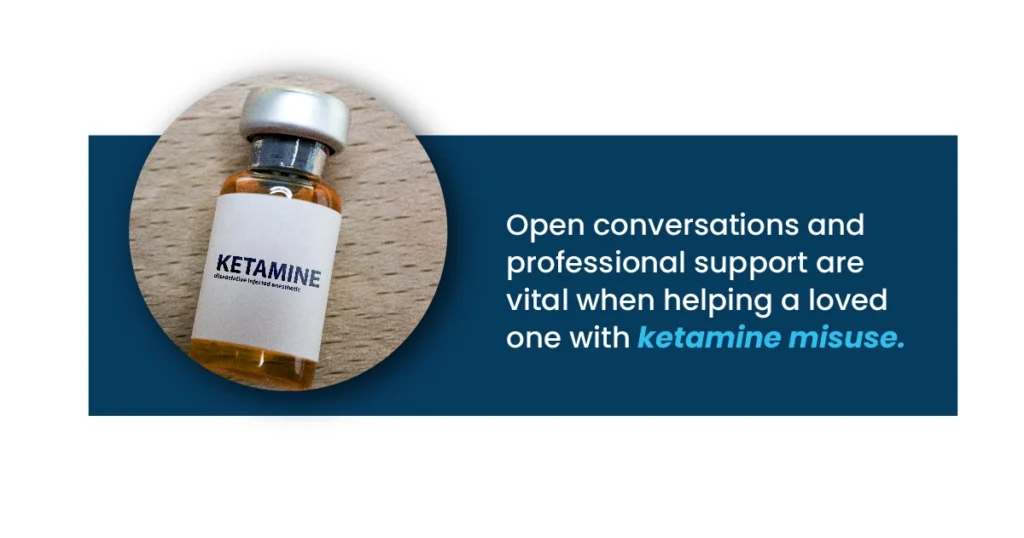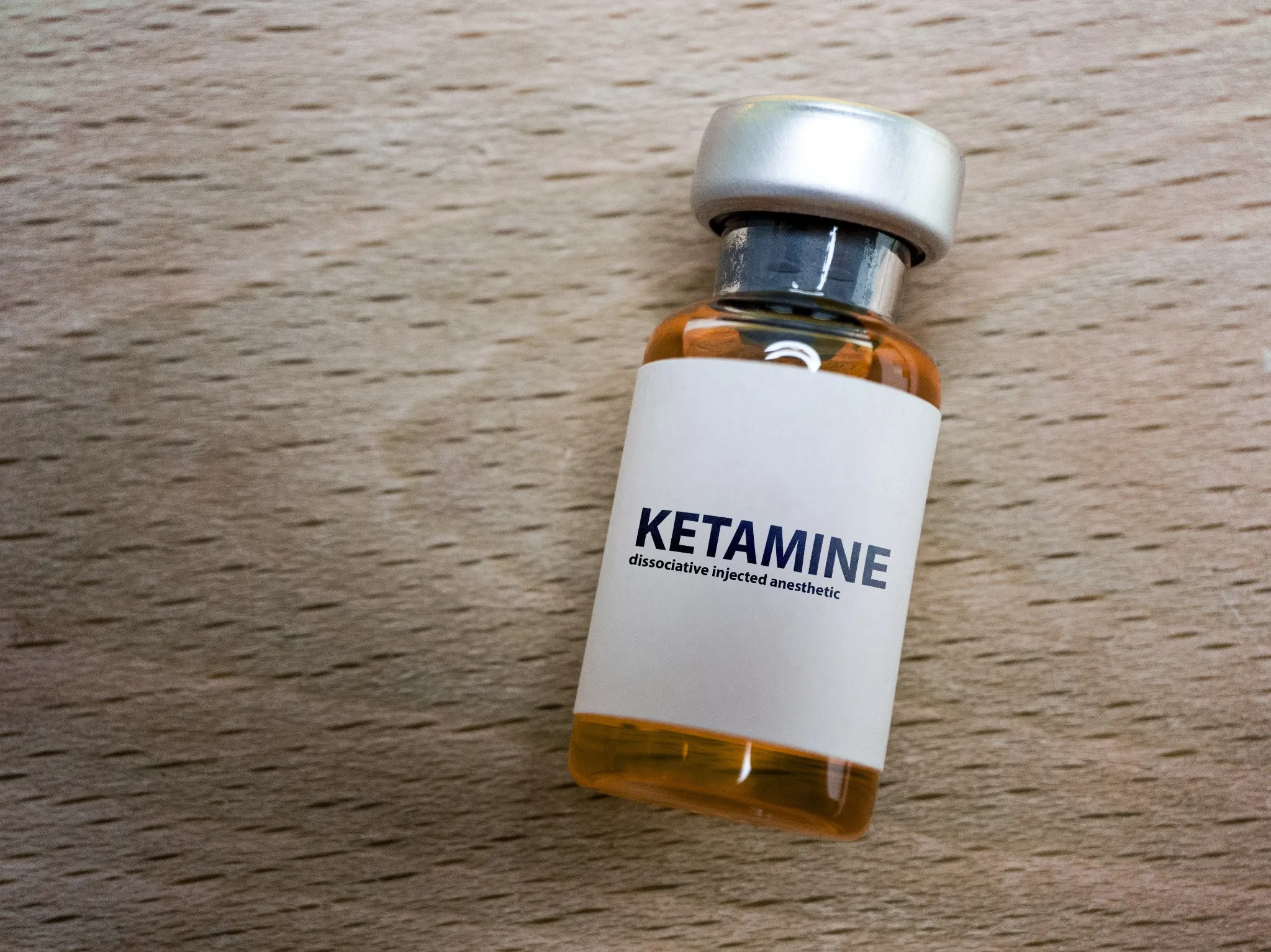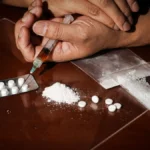Ketamine, a powerful drug, is commonly used for medical purposes like anesthesia. However, some people misuse it for its hallucinogenic effects, leading to ketamine abuse. This abuse can result in ketamine addiction, causing detrimental effects on people’s physical and mental health.
Individuals using ketamine may experience withdrawal symptoms when trying to quit. That highlights the challenges associated with breaking free from this harmful habit. Understanding the ketamine use risks and getting treatment services for addiction is crucial to promoting a healthier and safer community.
Treatment Services
Treatment services for ketamine abuse offer a range of options to help individuals on the path to recovery. Different levels of care, like outpatient and inpatient programs, provide tailored support based on the severity of ketamine’s effects. Therapies, including counseling and group sessions, address mental health issues associated with ketamine use.
Medication management programs help manage withdrawal symptoms, such as abdominal pain, making the recovery journey more comfortable. Rehab aftercare programs are vital in preventing relapse by offering ongoing support and guidance. These treatment programs collectively aim to address the physical and mental aspects of ketamine abuse, promoting overall well-being and recovery from mental illness.
Key Takeaways
Ketamine misuse can lead to addiction, impacting physical and mental health and requiring treatment services. Here’s what you need to know:
- Recognizing signs of ketamine abuse and mental health issues prompts timely intervention for recovery.
- Open conversations and professional support are vital when helping a loved one with ketamine misuse.
- Treatment services offer diverse options that aid individuals on recovery journeys.
The Haven Detox-Little Rock can help you towards recovery. Feel free to call us today at (501) 271-3342.

Symptoms of Ketamine Abuse
Chronic ketamine abuse can lead to various physical and mental symptoms, especially when used in higher doses for recreational purposes. Individuals may experience short-term memory loss, intense confusion, and even a trance-like state due to ketamine’s dissociative properties. Severe abdominal pain and chest pain are also reported in severe cases of overdose of ketamine.
The drug’s addictive potential contributes to substance use disorders, impacting brain function and motor skills. Young people are particularly vulnerable to ketamine misuse, often unaware of its negative consequences. The black market’s role in ketamine’s popularity further raises concerns about near-death experiences and psychotic symptoms associated with this recreational drug.
When to Seek Treatment
Knowing when to seek treatment for ketamine misuse is crucial for one’s well-being. If you or someone you know has been using ketamine and experiences symptoms of depression or cognitive impairment, seeking professional help is important.
These signs indicate potential risks to physical and mental health, and prompt intervention can prevent further harm. If there are concerns about symptoms of ketamine overdose, such as confusion, severe stomach ache, or chest pain, seeking immediate medical attention is essential. Timely treatment services can provide recovery support.
If a Loved One Needs Help
If someone you care about is struggling with ketamine addiction, it’s essential to offer support. Recognizing the signs of ketamine abuse, including psychological effects and mental health problems, is the first step. Here’s how to approach the situation:
- Approach the conversation with empathy and understanding, acknowledging that substance misuse can be challenging.
- Share your concerns about their well-being and any observed changes in behavior.
- Suggest seeking guidance from healthcare professionals or treatment services to address the issue effectively.
- Reassure your loved one that they are not alone and your support is crucial for their recovery.
Remember, seeking help for ketamine abuse, especially when it involves recreational use or high doses, is vital for their health and well-being. In the United States, where street ketamine is a concern, prompt intervention can make a significant difference in overcoming the challenges associated with dissociative anesthetics.
Causes of Ketamine Abuse
Various factors can influence ketamine abuse, each playing a role in the misuse of this substance. There are various causes of abuse, such as friends influencing an individual to try substances as a way of socializing.
Peer Pressure
The allure of ketamine, with its hallucinogenic effects and reputation as a party drug, creates a high chance of individuals succumbing to peer pressure. College students usually feel the desire to fit into the party scene, where ketamine, or “Special K,” is commonly used as a club drug. The craving to experience unique physical sensations and be part of the drug-fueled social environment often leads to regular use.
Mental Illness and Addiction
Mental health issues such as anxiety and addiction are closely related. Some individuals seek solace or escape from their problems through the use of dissociative drugs like ketamine. Unfortunately, the short-acting relief provided by the substance may lead to negative impacts on mental health, fostering addiction.
Drug Availability
The easy accessibility of ketamine, both through legal means and the black market, contributes to its popularity. Large doses and high enough doses of ketamine become readily available, increasing the risk of respiratory failure, impaired motor function, and other severe consequences.
Recognizing these causes is crucial for developing effective prevention and intervention strategies to curb the negative impact of ketamine misuse on individuals and communities.
Risk Factors of Ketamine Abuse
Ketamine abuse poses inherent risks influenced by various risk factors. Ketamine’s popularity as a recreational drug elevates the likelihood of greater risk, especially when consumed in higher doses. The dissociative effects of ketamine, leading to a state known as the “K-hole,” contribute to its appeal as a drug of abuse.
Environmental factors, such as exposure to a party scene or a culture endorsing drug use, increase susceptibility to ketamine misuse. Additionally, the fact that ketamine is not FDA-approved and should not be used for recreational purposes underscores the risks associated with its unauthorized consumption. Misuse heightens the potential for substance abuse and its adverse consequences.
Effects of Ketamine Abuse
Ketamine abuse can have both short-term and long-term impacts on individuals, affecting their physical and mental well-being. Individuals must be aware of these potential effects and seek support to break free from the cycle of ketamine abuse, promoting a healthier and more sustainable lifestyle.
Short-Term Impact
In the short term, the use of ketamine, especially in high enough dosages, poses risks of physical effects. Individuals may experience a range of highs, including altered sensations and dissociative effects, within a relatively short period. These effects contribute to the drug’s appeal, but the greater risk lies in potential side effects like impaired coordination and heightened vulnerability to accidents.
Long-Term Impact
Continued and chronic use of ketamine can lead to more pronounced and enduring consequences. Long-term ketamine abuse may contribute to chronic pain and worsen existing physical conditions. The persistent use of ketamine over an extended period may result in lasting side effects, impacting mental health and overall well-being.
Treatment of Ketamine Abuse
Seeking help for ketamine abuse involves a variety of approaches, each designed to support individuals on their journey to recovery. Here are the levels of care available at our rehab facility:
Medical Detox
Medical detox is a crucial first step in treating ketamine abuse. Under the supervision of healthcare professionals, individuals gradually withdraw from ketamine use.
This detox process helps manage withdrawal symptoms, ensuring a safer and more comfortable experience. Medical detox focuses on addressing the physical aspects of ketamine dependence, preparing individuals for the next stages of recovery.
Inpatient Residential Rehab
Inpatient residential rehab provides a structured and supportive environment for individuals struggling with ketamine abuse. During residential rehab, individuals live in a facility with a routine that includes therapy sessions, group activities, and educational sessions.
The routine often includes counseling, medical check-ups, and various therapeutic activities. Such programs address both the physical and psychological aspects of ketamine addiction.
Behavioral Therapies
Behavioral therapies, such as dialectical behavior therapy (DBT) and cognitive behavioral therapy (CBT), play a crucial role in addressing the mental aspects of ketamine abuse. DBT emphasizes acceptance and change, helping individuals manage emotions and develop healthier coping mechanisms.
CBT targets negative thought patterns and behaviors, encouraging individuals to replace them with positive alternatives. These therapies provide tools and strategies to prevent relapse and promote lasting recovery.
Frequently Asked Questions (FAQ)
Abuse of ketamine poses potential dangers and risks, especially when consumed in higher doses. Ketamine abuse may lead to high blood pressure, risking cardiovascular health. Additionally, repeated use may harm the urinary tract.
The abuse of ketamine can have adverse effects on both physical and mental well-being. That highlights the importance of understanding and addressing these risks to promote a safer and healthier lifestyle.
Yes, ketamine can be addictive. Regular use or misuse of ketamine may lead to dependence, where your body becomes accustomed to the drug.
This dependence can result in cravings and difficulties stopping use, indicating addictive potential. It’s essential to be aware of these risks and seek support if someone is struggling with ketamine use to prevent the development of addiction and its negative impact on overall well-being.
Treating ketamine addiction involves various steps. Medical detox helps manage withdrawal symptoms, ensuring a safer withdrawal process. Inpatient residential rehab provides a structured environment for focused recovery.
Behavioral therapies, like DBT and CBT, address the mental aspects of addiction. Support groups and aftercare programs offer ongoing assistance. Seeking professional help and building a strong support system are crucial in overcoming ketamine addiction.
Break-Free from Addiction at The Haven Detox-Little Rock
If you or your loved one is stuck in the cycle of ketamine addiction, then asking for help is the first step towards recovery. The Haven Detox-Little Rock is here to assist you and offers medical detox. During this process, our team of doctors monitors you and provides treatment services to alleviate withdrawal symptoms.
Our residential treatment is perfect if you want a secure and supportive environment with 24/7 care. We offer drug-free settings and offer therapies and counseling for long-term sobriety.
Don’t hesitate to reach out to us. Call us today at (501) 271-3342.




